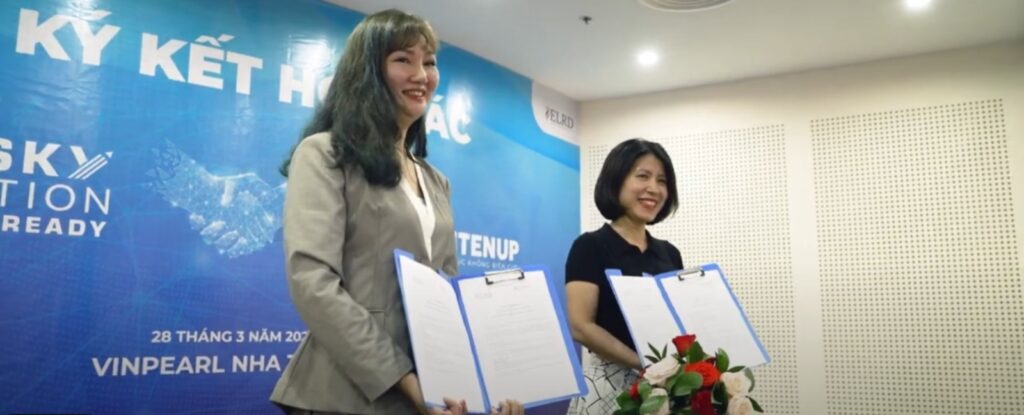Language immersion programmes are educational programs that provide students with the opportunity to learn a new language through complete immersion in a target language environment. These programs are designed to help students develop their language skills quickly and effectively by surrounding them with native speakers and providing them with authentic language experiences.
In Singapore, language immersion programmes are widely available and cater to learners of all ages and proficiency levels. These programmes offer a unique opportunity for individuals to learn languages such as English, Mandarin, Malay, and Tamil in a multicultural and multilingual environment.
Why Choose Singapore for Language Learning?
Singapore is an ideal destination for language learning due to its multilingual environment, high-quality education system, and cultural diversity. The country is known for its linguistic diversity, with English being the main language of instruction in schools and workplaces. Additionally, Mandarin, Malay, and Tamil are also recognized as official languages.
Singapore’s education system is highly regarded globally, with a strong emphasis on language learning. The country’s schools offer comprehensive language programmes that focus on developing students’ reading, writing, listening, and speaking skills. This ensures that learners receive a well-rounded education and are equipped with the necessary language skills to communicate effectively in a globalized world.
Furthermore, Singapore’s cultural diversity provides learners with a unique opportunity to immerse themselves in different cultures and gain exposure to various languages. The country’s rich heritage and vibrant multicultural society make it an exciting and dynamic place to learn languages.
Factors to Consider When Choosing a Language Immersion Programme
When choosing a language immersion programme in Singapore, there are several factors that you should consider. These include your language proficiency level, learning objectives and goals, duration and intensity of the programme, as well as your budget and financial considerations.
Firstly, it is important to assess your current language proficiency level before enrolling in a language immersion programme. This will help you determine the appropriate level of instruction and ensure that you are placed in a class that matches your abilities. Some programmes may offer placement tests or assessments to determine your proficiency level.
Secondly, you should consider your learning objectives and goals. Are you looking to improve your conversational skills, enhance your business communication abilities, or prepare for a language proficiency exam? Different programmes may have different focuses, so it is important to choose one that aligns with your specific goals.
The duration and intensity of the programme are also important factors to consider. Some programmes may offer short-term intensive courses, while others may provide long-term part-time options. It is important to choose a programme that fits your schedule and allows you to dedicate the necessary time and effort to achieve your language learning goals.
Lastly, budget and financial considerations play a role in choosing a language immersion programme. It is important to research and compare the costs of different programmes to ensure that they fit within your budget. Additionally, you may want to explore scholarship or financial aid options that could help offset the costs of the programme.
Understanding the Different Types of Language Immersion Programmes Available
Language immersion programmes in Singapore come in various formats, including full-time and part-time programmes, intensive and non-intensive options, group and individual classes, as well as online and offline courses.
Full-time programmes are typically more immersive and intensive, as they require students to dedicate a significant amount of time to their language studies. These programmes are suitable for individuals who want to focus solely on language learning and have the flexibility to commit to a full-time schedule.
Part-time programmes, on the other hand, are designed for individuals who have other commitments such as work or school. These programmes offer more flexibility in terms of scheduling and allow learners to balance their language studies with other responsibilities.
Intensive programmes are ideal for individuals who want to learn a language quickly and efficiently. These programmes typically involve more hours of instruction per week and may have a shorter duration. Non-intensive programmes, on the other hand, are more suitable for individuals who prefer a slower pace of learning and have more time to dedicate to their language studies.
Group classes provide learners with the opportunity to interact and practice their language skills with peers. These classes are often more affordable and offer a collaborative learning environment. Individual classes, on the other hand, provide learners with personalized attention and allow for more focused instruction.
Online language immersion programmes have become increasingly popular in recent years. These programmes offer flexibility in terms of scheduling and location, as learners can access course materials and participate in virtual classes from anywhere with an internet connection. Offline programmes, on the other hand, provide learners with face-to-face interaction and a more immersive language learning experience.
Language Immersion Programme Curriculum and Teaching Methodologies
Language immersion programmes in Singapore typically follow a structured curriculum that is designed to develop learners’ language skills in a systematic manner. The curriculum may include various components such as grammar, vocabulary, reading, writing, listening, and speaking.
Teaching methodologies and approaches may vary depending on the programme and the target language. However, many language immersion programmes in Singapore adopt communicative language teaching (CLT) methodologies, which focus on developing learners’ ability to communicate effectively in real-life situations.
In CLT-based programmes, learners are encouraged to actively participate in class discussions, engage in role-plays and simulations, and complete communicative tasks that require them to use the target language in meaningful ways. This approach helps learners develop their fluency and accuracy in the language while also building their confidence.
Assessment and evaluation methods also play a crucial role in language immersion programmes. These methods may include written tests, oral presentations, group projects, as well as continuous assessment through class participation and homework assignments. Regular feedback from teachers allows learners to track their progress and identify areas for improvement.
Accreditation and Certification of Language Immersion Programmes in Singapore

Accreditation and certification are important considerations when choosing a language immersion programme in Singapore. Accreditation ensures that the programme meets certain quality standards and is recognized by relevant educational authorities.
In Singapore, language immersion programmes may be accredited by various bodies such as the Committee for Private Education (CPE) or the Singapore Accreditation Council (SAC). These accreditation bodies assess the quality of the programme’s curriculum, teaching staff, facilities, and student support services.
Certification, on the other hand, provides learners with a formal recognition of their language proficiency. Many language immersion programmes offer certification exams such as the International English Language Testing System (IELTS) or the Test of English as a Foreign Language (TOEFL) for English language learners. These certifications are widely recognized and can be used for academic or professional purposes.
When choosing a language immersion programme, it is important to ensure that the programme is accredited by a reputable body and offers recognized certification options. This will provide learners with assurance of the programme’s quality and enhance their employability or further educational opportunities.
Location and Facilities of Language Immersion Programme Providers
The location and facilities of language immersion programme providers are important factors to consider when choosing a programme. The location should be easily accessible and convenient for learners, with good transportation links and amenities nearby.
Facilities and resources available at the provider’s premises are also important considerations. Classrooms should be well-equipped with audiovisual aids, computers, and internet access to facilitate interactive learning. Additionally, libraries, study areas, and language labs may also be available to support learners’ independent study and practice.
For international students, accommodation options may also be a consideration. Some language immersion programme providers may offer on-campus or off-campus accommodation options, such as student dormitories or homestays. It is important to research and compare these options to find one that suits your preferences and budget.
Student Support Services and Cultural Immersion Activities
Student support services are an important aspect of language immersion programmes in Singapore. These services are designed to assist learners in their language learning journey and provide them with the necessary support and guidance.
Common student support services include academic advising, counseling, and career guidance. Academic advisors can help learners plan their course of study and select appropriate modules or electives. Counselors can provide emotional support and help learners navigate any challenges they may face during their language studies. Career guidance services can assist learners in exploring career options and developing their employability skills.
Cultural immersion activities are also an integral part of language immersion programmes. These activities provide learners with opportunities to experience the local culture, practice their language skills, and interact with native speakers. Cultural immersion activities may include field trips to museums or cultural sites, language exchange programs with local students, or participation in community events.
Cost and Value for Money of Language Immersion Programmes in Singapore
The cost of language immersion programmes in Singapore can vary depending on factors such as the duration, intensity, and type of programme. Full-time intensive programmes are generally more expensive than part-time non-intensive options.
When considering the cost of a programme, it is important to take into account the value for money that it offers. This includes factors such as the quality of instruction, the reputation of the programme provider, the resources and facilities available, as well as the support services provided.
Some language immersion programmes may offer scholarships or financial aid options for eligible students. It is worth exploring these options to see if you qualify for any financial assistance that could help offset the costs of the programme.
Making the Right Choice for Your Language Learning Needs in Singapore
Choosing a language immersion programme in Singapore requires careful consideration of various factors such as your language proficiency level, learning objectives and goals, duration and intensity of the programme, budget and financial considerations, as well as the location, facilities, and support services provided by the programme provider.
By taking the time to research and compare different programmes, you can make an informed decision that aligns with your language learning needs and goals. It is also important to seek advice from language learning professionals or consult with programme providers to get a better understanding of what each programme offers.
Ultimately, choosing a language immersion programme in Singapore provides learners with a unique opportunity to develop their language skills in a multicultural and multilingual environment. With the right programme and dedication, learners can achieve their language learning goals and open doors to new opportunities in their personal and professional lives.


